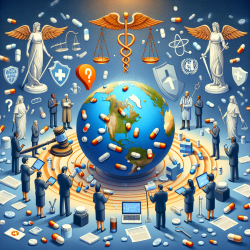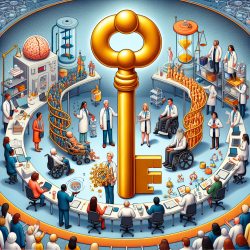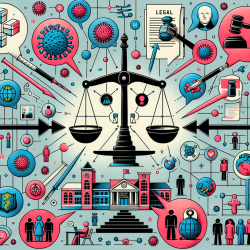Introduction
Counterfeit medicines pose a significant threat to global health, impacting patients across various demographics and regions. The research article titled "Improving global health governance to combat counterfeit medicines: a proposal for a UNODC-WHO-Interpol trilateral mechanism" by Mackey and Liang (2013) highlights the need for a coordinated global response to this pressing issue. This blog aims to help practitioners, particularly those in speech-language pathology, understand the implications of this research and how they can contribute to improving health outcomes by implementing its findings.
The Scope of the Problem
Counterfeit medicines are prevalent in both developed and developing countries, posing risks to patient safety and public health. These medicines can be substandard, ineffective, or even harmful, leading to severe health consequences. The World Health Organization (WHO) estimates that counterfeit medicines account for up to 10% of the global drug market, with higher percentages in developing countries.
Key Findings from the Research
The research article proposes a trilateral mechanism involving the United Nations Office on Drugs and Crime (UNODC), WHO, and Interpol to combat counterfeit medicines effectively. The key findings include:
- Enhanced Surveillance: Improved data collection and surveillance systems to monitor and report counterfeit medicines.
- Regulatory Frameworks: Harmonized legal and regulatory frameworks to address the issue at both national and international levels.
- Public Awareness: Increased public awareness and education campaigns to inform consumers and healthcare professionals about the dangers of counterfeit medicines.
- Interagency Collaboration: Enhanced collaboration between UNODC, WHO, and Interpol to leverage their respective strengths in public health, law enforcement, and transnational crime prevention.
Implications for Speech-Language Pathologists
As speech-language pathologists, ensuring the safety and efficacy of medications used in treatment plans is crucial. Implementing the findings from this research can help practitioners contribute to global health governance and patient safety. Here are some actionable steps:
- Stay Informed: Keep up-to-date with the latest information on counterfeit medicines and their impact on patient health. Utilize resources from WHO, UNODC, and Interpol.
- Educate Patients and Families: Inform patients and their families about the risks associated with counterfeit medicines and how to identify legitimate sources.
- Report Suspicious Activities: Report any suspicious activities or counterfeit medicines encountered in your practice to the relevant authorities.
- Advocate for Policy Changes: Advocate for stronger regulatory frameworks and interagency collaborations to combat counterfeit medicines at local, national, and international levels.
Encouraging Further Research
While the proposed trilateral mechanism offers a robust framework for addressing counterfeit medicines, further research is essential to refine and implement these strategies effectively. Practitioners are encouraged to engage in research activities, contribute to data collection efforts, and collaborate with interdisciplinary teams to enhance the evidence base.
Conclusion
Counterfeit medicines represent a significant global health challenge that requires a coordinated and comprehensive response. By understanding and implementing the findings from the research article by Mackey and Liang, speech-language pathologists can play a vital role in safeguarding patient health and contributing to global health governance. To read the original research paper, please follow this link: Improving global health governance to combat counterfeit medicines: a proposal for a UNODC-WHO-Interpol trilateral mechanism.










